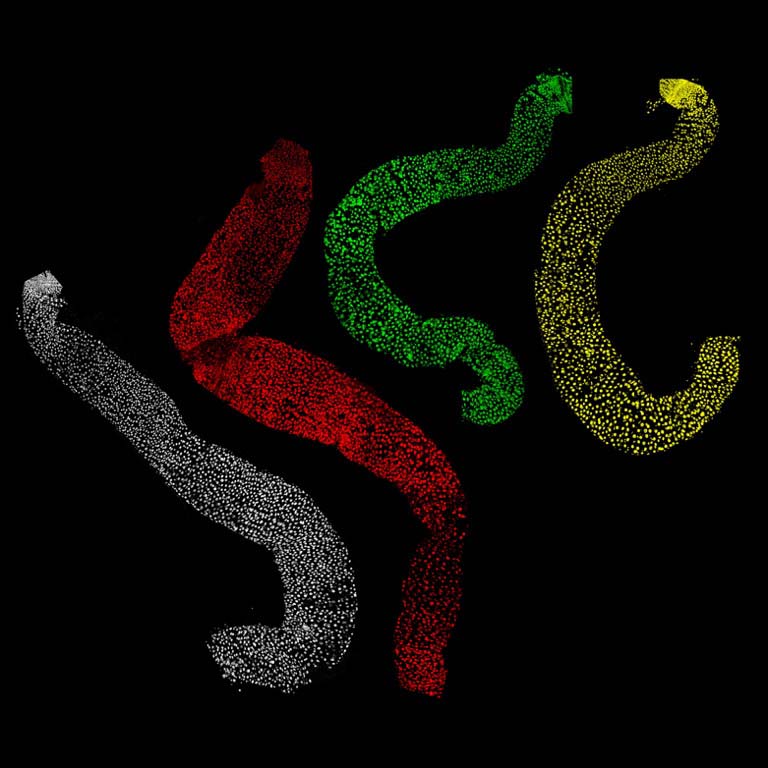Indiana University research could shed light on biological mechanism behind genetic disorder’s symptoms.
Researchers at Indiana University have found a previously undetected link between the gene that causes fragile X syndrome and increased tissue growth. The link could reveal a key biological mechanism behind the serious physical and mental impairments caused by the disorder.
An inheritable genetic condition, fragile X syndrome is estimated to cause mild to moderate intellectual disabilities in 1 in 4,000 to 5,000 males and 1 in 6,000 to 8,000 females. It also causes physical abnormalities such as large brain size and weight at birth, unusually fast growth in height, gastrointestinal issues and high risk of obesity.
The study, which was conducted in fruit flies, focused on the effects of losing the same protein that’s missing in people with fragile X syndrome on the intestines of insects modified to model the disease. The work is reported in the journal Cell Reports.
"To our knowledge, this is the first study to find a stem-cell-based mechanism by which a protein that is absent in people with fragile X syndrome limits excessive organ growth," said Arthur Luhur, a research associate in the IU Bloomington College of Arts and Sciences' Department of Biology, who is the lead author on the study. "This could represent a root cause for the gastrointestinal problems seen in people with the condition."



 The College of Arts
The College of Arts